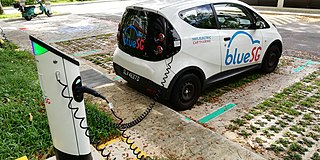
Clean technology, in short cleantech, is any process, product, or service that reduces negative environmental impacts through significant energy efficiency improvements, the sustainable use of resources, or environmental protection activities. Clean technology includes a broad range of technology related to recycling, renewable energy, information technology, green transportation, electric motors, green chemistry, lighting, grey water, and more. Environmental finance is a method by which new clean technology projects can obtain financing through the generation of carbon credits. A project that is developed with concern for climate change mitigation is also known as a carbon project.

Energy supply is the delivery of fuels or transformed fuels to point of consumption. It potentially encompasses the extraction, transmission, generation, distribution and storage of fuels. It is also sometimes called energy flow.


Renewable energy commercialization involves the deployment of three generations of renewable energy technologies dating back more than 100 years. First-generation technologies, which are already mature and economically competitive, include biomass, hydroelectricity, geothermal power and heat. Second-generation technologies are market-ready and are being deployed at the present time; they include solar heating, photovoltaics, wind power, solar thermal power stations, and modern forms of bioenergy. Third-generation technologies require continued R&D efforts in order to make large contributions on a global scale and include advanced biomass gasification, hot-dry-rock geothermal power, and ocean energy. As of 2012, renewable energy accounts for about half of new nameplate electrical capacity installed and costs are continuing to fall.

According to data from the US Energy Information Administration, renewable energy accounted for about 13.1% of total primary energy consumption and about 21.5% of total utility-scale electricity generation in the United States in 2022.

The Clean Tech Revolution: The Next Big Growth and Investment Opportunity is a 2007 book by Ron Pernick and Clint Wilder, who say that commercializing clean technologies is a profitable enterprise that is moving steadily into mainstream business. As the world economy faces challenges from energy price spikes, resource shortages, global environmental problems, and security threats, clean technologies are seen to be the next engine of economic growth.
Clint Wilder is a business journalist who has covered the high-tech and clean-tech industries since 1985.
Ron Pernick is an American author and the co-founder and managing director of Clean Edge, a developer and publisher of thematic stock indexes tracking clean energy, transportation, water, and the grid. He is an accomplished market research, publishing, and business development entrepreneur with more than three decades of high-tech experience.

The renewable-energy industry is the part of the energy industry focusing on new and appropriate renewable energy technologies. Investors worldwide have paid greater attention to this emerging industry in recent years. In many cases, this has translated into rapid renewable energy commercialization and considerable industry expansion. The wind power, solar power and hydroelectric power industries provide good examples of this.
Selling Solar: The Diffusion of Renewable Energy in Emerging Markets is a 2009 Earthscan book by Damian Miller. Miller argues that, in order to solve the climate crisis, the world must immediately and dramatically accelerate the commercialization of renewable energy technology. This needs to happen in the industrialized world, as well as in the emerging markets of the developing world where most future greenhouse gas emissions will occur.
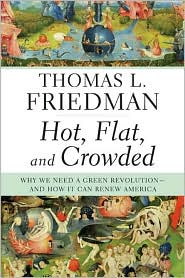
Hot, Flat, and Crowded: Why We Need a Green Revolution—And How It Can Renew America is a book by New York Times Foreign Affairs columnist Thomas Friedman, proposing that the solutions to global warming and the best method to regain the United States' economic and political stature in the world are to embrace the clean energy and green technology industries. The title derives from the convergence of Hot, Flat and Crowded.

Christopher Frank William Goodall is an English businessman, author and expert on new energy technologies. He is an alumnus of St Dunstan's College, University of Cambridge, and Harvard Business School (MBA).
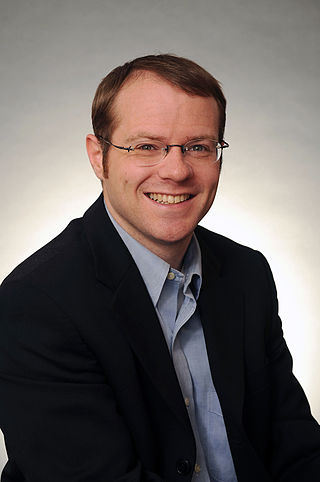
Benjamin K. Sovacool is an American academic who is director of the Institute for Global Sustainability at Boston University as well as Professor of Earth and Environment at Boston University. He was formerly Director of the Danish Center for Energy Technology at the Department of Business Development and Technology and a professor of social sciences at Aarhus University. He is also professor of energy policy at the University of Sussex, where he formerly directed the Center on Innovation and Energy Demand and the Sussex Energy Group. He has written on energy policy, environmental issues, and science and technology policy. Sovacool is also the editor-in-chief of Energy Research & Social Science.

Reinventing Fire: Bold Business Solutions for the New Energy Era is a 2011 book, by Amory B. Lovins and the Rocky Mountain Institute, that explores converting the United States to almost total reliance on renewable energy sources, such as solar energy and wind power. Lovins says that renewable energy is already cheaper than fossil fuels and his analysis predicts further reductions in renewable energy prices.
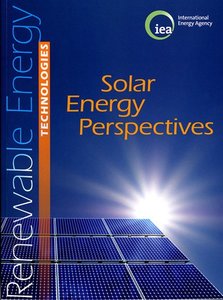
Solar Energy Perspectives is a 2011 book by the International Energy Agency.

Apollo's Fire: Igniting America's Clean Energy Economy is a 2007 book by Washington State Governor Jay Inslee and researcher Bracken Hendricks. Inslee first proposed an Apollo-scale program, designed to galvanize the nation around the urgent goal of solving the environmental and energy crisis, in the Seattle Post-Intelligencer in 2002. Eventually Inslee co-authored Apollo's Fire, in which he says that through improved Federal policies the United States can wean itself off of its dependence on foreign oil and fossil fuel, create millions of green-collar worker jobs, and stop global warming. Along these lines, he has been a prominent supporter of the Apollo Alliance.
Clean Edge, Inc., founded in 2000, is a U.S.-based developer and publisher of thematic stock indexes tracking clean energy, transportation, water, and the grid. The firm's first index, the Nasdaq Clean Edge Green Energy Index (CELS), was launched with Nasdaq in 2006. Financial products tracking the firm's indexes and universes exceed $2.5 billion in assets under management.
The green bubble is a theory that the world is facing an over-investment in renewable energy and that the current levels of debts in many clean tech companies are unsustainable. As the interest rate rises many of the projects that are on the market today will go bust, which is claimed to become a big set-back for the renewable energy industry.
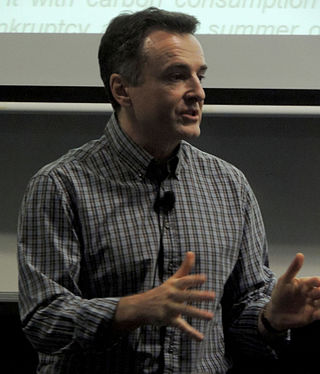
John O'Brien is an English businessman and an expert advisor to Australian governments and the cleantech sector. He is a Partner with Deloitte Financial Advisory and leads the firm's Energy Transition and Decarbonisation work in Australia. He was formerly the managing director of Australian CleanTech which acted as the Australian representative for the Global CleanTech Cluster Association. He was also a non-executive director of Novarise Ltd, an ASX listed company which recycles polypropylene waste in China. O'Brien entered the Australian energy sector in the 1990s and worked for Origin Energy for nine years. He had previously worked in the Middle East, the United Kingdom and Canada where he held various oil and gas industry and consulting engineering roles. O'Brien lectured in leadership and entrepreneurship at the University of Adelaide and was a member of the Premier’s Climate Change Council in South Australia. He has been a member of the board of several CleanTech companies involved in wind farm development, biosensors and plastic recycling. He has served on the board of Renewables SA and as a member of the Clean Technology Innovation Program Committee at Innovation Australia. O'Brien has studied at Oxford, Trinity College in Dublin and the University of Adelaide from which he has received two engineering degrees and an MBA respectively.














